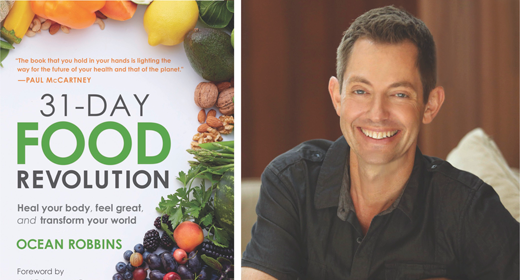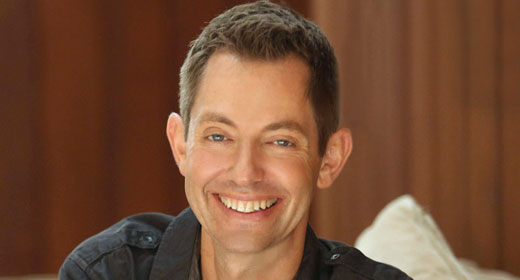When words come from the heart, they break through barriers and elicit compassion, says Marshall B. Rosenberg
by Sarah van Gelder & Marshall Rosenberg: Marshall Rosenberg travels the globe teaching Nonviolent Communication to diplomats, educators, corporate managers, parents, military personnel, peace activists, and others in over 20 countries. He has conducted mediation sessions in the Middle East, Sierra Leone, Croatia, and Rwanda. Sarah van Gelder interviewed Marshall when he was on Bainbridge Island to help mediate a dispute between developers and local activists.
SARAH: What was it that first got you interested in nonviolent communication?
MARSHALL: I got interested in this type of communication through pondering two kinds of smiles. My family was the only Jewish family in our Detroit neighborhood, and I was exposed to a considerable amount of violence. The beatings every day on my way home were not pleasant, of course, but what bothered me most was that the onlookers would smile and enjoy it.
During each day of my childhood, I also saw another kind of smile. My grandmother was totally paralyzed with Lou Gehrig’s Disease, and my uncle came over to help care for her every day after he finished working. My grandmother was incontinent at that time, so it required cleaning her up. As a boy of eight or nine, I thought it was a horrible job! But I couldn’t wait for the uncle to come, because he smiled as though he were getting the greatest pleasure a person could get just by serving my grandmother.
I grew up wondering why it is that some people smile when others are being beaten and other people smile
when they’re giving pleasure, even though it may mean doing dirty work.
SARAH: Where did you go to look for the answer to that question?
MARSHALL: I got a doctoral degree in psychology, but I was very dissatisfied with its focus on pathology. The training didn’t help me understand very compassionate people like my uncle.
So, for about a year, I studied comparative theology on my own. I saw the commonality that existed in many religions, especially around this word “love.” I soon saw that the words “compassion” and “love” were not so much feelings as they were actions. They are a way of serving people with pleasure and getting joy from that service. I think that is part of our nature.
When I say that, people sometimes think I’m rather Pollyanna-ish to talk this way with the enormity of violence in the world. I see an awful lot of violence in my work, but I’ve become even more convinced that violence is not our nature.
I was in a refugee camp in Sierra Leone, Africa, and there were hundreds of frightened kids just sitting around who had lost their parents. One of the men I worked with went over and told these kids that I liked one of their hymns. Then he called me over as a surprise and said, “These kids have something they want to give you.”
Now, I had just seen them a few minutes before – pathetic, frightened, scared. But when he told them that this would be a real gift to me, they started to sing me this hymn, and I couldn’t believe the looks of pure joy and happiness on their faces. It’s amazing. People, no matter what conditions they’re under, can give.
SARAH: How does your approach to communication get people in touch with love and compassion?
MARSHALL: The purpose of the model we use is to enable us to respond compassionately to ourselves and others, and to strengthen our ability to inspire compassion from others.
We call the language that we teach “giraffe language,” though its official name is “Nonviolent Communication.” I use the image of a giraffe because it’s a language of the heart, and a giraffe has the largest heart of any land animal.
Unfortunately for myself, I was taught to speak “jackal language.” You see, a jackal is closer to the ground. They get so preoccupied with getting their needs met that they just can’t see into the future like the tall giraffe. Jackals speak in ways that block compassionate communication, because they’re motivated out of fear, shame, and guilt.
SARAH: Can you talk about jackal language first? I was particularly struck by your idea of how we always have choices in how we act.
MARSHALL: I first got the idea that we always have choices from the psychologist who examined the top Nazi war criminals. What he found was that they were pretty normal, nice people. But I noticed as I was reading through the interviews how often a language was used by these people that denied choice: “should,” “one must,” “have to.”
In Hannah Arendt’s book, Eichmann in Jerusalem, Eichmann was asked, “Was it difficult for you to send these tens of thousands of people to their death?” And Eichmann answered very candidly, “To tell you the truth, it was easy. Our language made it easy.”
His interviewer asked what that language was, and Eichmann said, “My fellow officers and I coined our own name for our language. We called it amtssprache – ‘office talk.’” When asked for examples, Eichmann said, “It’s basically a language in which you deny responsibility for your actions. So if anybody says, ‘Why did you do it?’ you say, ‘I had to.’ ‘Why did you have to?’ ‘Superiors’ orders. Company policy. It’s the law.’”
There’s no force on Earth that can make us do anything that we don’t choose to do, though we may not always like the choices that we’re aware of.
SARAH: You’ve mentioned two other types of language that block compassion – evaluations and demands.
MARSHALL: The Nazis and others who persecute people, in addition to denying responsibility for their actions, evaluate themselves and others through the use of dehumanizing labels, diagnoses, and interpretations. That involves using such words as “kikes,” “niggers,” or “gooks,” etc.
I’m equally concerned about positive diagnoses, by the way. Whether I say you are a nice person or a selfish person, I’m still claiming to know what you are and thereby alienating myself from the truth about you. I believe that diagnosing and interpreting other people disconnects us from their vulnerability and encourages us to punish them.
A third type of jackal language is a demand. As I use the term, demands carry a threat of punitive action if not acted upon. For example, let’s say I just asked you to get me some water, and you reply that you are tired and would appreciate it if I asked someone else to get me some water. Then I say, “You’re just lazy. I’ve done more work than you have today.” We would realize that I was making a demand because of my attempt to punish you through shame for not acting in harmony with my desires.
I learned about the self-defeating nature of demands when I was a practicing psychologist. I spent many hours talking with children who weren’t doing what their parents were requesting. I learned that the kids were receiving those requests as demands. The children would tell me things like, “I don’t feel like studying when my parents threaten to take away my allowance.” Or, “Would you feel like taking the garbage out if your parents said that you were lazy and irresponsible?”
SARAH: OK, let’s talk about giraffe language. How do you foster compassionate communication?
MARSHALL: We basically ask people to answer the question that we ask all over the world: “How are you?”
Of course, “How are you?” has become ritualized in many cultures, but it’s a profoundly important question, because living in harmony with our nature – which I think is compassion – requires being able to stay connected to one another. So, our training involves nakedly and vulnerably revealing at any given moment how you are.
The next step is to talk about what could be done to make life even more wonderful. In my work, I find that if people would just keep their communication focused at that level – “How are you? What would make your life more wonderful?” –this natural compassion flows even when the people have an enormously painful history.
For example, I was asked to work in a village in Nigeria where a quarter of the population had been killed in conflicts between Muslims and Christians that year. I’m in a room with the chiefs of both tribes; my friend had told me earlier there would be at least three people in that room who knew that somebody who killed their child was there with them.
So, what do I do? I try to get people’s attention focused on those two areas: “How are you? What would make life more wonderful for you?”
One of the key ingredients is to find out what their needs are that aren’t getting met. So I asked both sides, “What are your needs?” And a chief from one of the tribes looks at the other and says, “You people are murderers!” And the other side immediately jumps up and says, “You people have been trying to dominate us for years!”
I believe that this analysis implying wrongness creates violence. In a case like this one, I try to hear how the person is behind their talk. I hear the need that’s being expressed, and then I help the other side hear that. Then I keep that flow going back and forth. No matter how they communicate, I translate it into how they are and help each side connect compassionately at that level. Within about two hours, one of the chiefs said, “If we knew how to do this ourselves, we wouldn’t have to kill each other.”
If I can keep people focused, I have yet to see any conflict that can’t be resolved. Now, it’s not easy to keep people at that level.
SARAH: Because it’s asking people to be vulnerable?
MARSHALL: Well, that’s a part of it. Instead of teaching us how to communicate in this vulnerable way, our cultural programming has taught us to imply wrongness in people who behave in ways that you don’t like. If you live within such a culture, then yes, it’s very scary to be vulnerable.
I get into a lot of settings, especially in businesses, where people are not used to being vulnerable. They’re all in a competitive game.
During one session, I got very emotional. Tears came to my eyes. The boss of this organization just looked really disgusted and turned away from me. It was horrible for a few seconds, because I allowed the look on his face to stimulate old jackal programming in me. I thought, “Oh, my God, I’ve behaved inappropriately. He must think I’m a real mess.”
But, when I remembered to direct my attention to how he was feeling and what he was needing, I said to him, “Are you feeling disgusted and needing whoever’s running a meeting like this to have his emotions more in control?” At that moment, it wasn’t painful for me to be vulnerable, because I was seeing his vulnerability.
I really thought I was accurate, but I was surprised with his response, because he said, “No, no. I was just thinking of how my wife wishes I could cry. I’m getting a divorce right now. She says that living with me is like living with a stone.”
SARAH: Does your approach require that all involved are willing to play by certain rules?
MARSHALL: No, you can keep this process going with anybody regardless of how they’re communicating. The important thing is to teach people how to listen for how the other person is, even when that other person doesn’t know how to communicate very clearly.
SARAH: I was interested in an example you shared in one of your workshops about a group of teachers who were having a conversation that wasn’t feeding you spiritually.
MARSHALL: Well, I was sitting around with a group of teachers who were all talking about what they did on vacation. Within ten minutes, my energy had dropped very low; I had no idea what people were feeling or wanting.
In giraffe, we know it’s not being kind to the other person to smile and open your eyes wide to hide the fact that your head has gone dead. The person in front of you wants their words to enrich you, so when they aren’t, it’s helpful to be kind and stop them. Of course, in the jackal culture, this isn’t done.
After listening awhile to the teachers, I screwed up my courage and said, “Excuse me, I’m impatient with the conversation because I’m not feeling as connected with you as I’d like to be. It would help me to know if you’re enjoying the conversation.” All nine people stopped talking and looked at me as if I had thrown a rat in the punch bowl.
For about two minutes, I thought I’d die, but then I remembered to look at the feelings and needs being expressed through the silence. I said, “I guess you’re all angry with me, and you would have liked for me to have kept out of the conversation.”
The moment I turned my attention to what they were feeling and needing, I removed their power to demoralize me.
However, the first person who spoke told me, “No, I’m not angry. I was just thinking about what you were saying. I was bored with this conversation.” And he had been doing most of the talking! But this doesn’t surprise me. I have found that if I am bored, the person doing the talking is probably equally bored, which usually means we’re not talking from life; we’re acting out some socially-learned habits.
Each one of the nine people then expressed the same feelings I had – impatience, discouragement, lifelessness, inertia. Then one of the women asked, “Marshall, why do we do this? Why do we sit around and bore each other? We get together every week and do this!”
I said, “Because we probably haven’t learned to take the risk that I just did, which is to pay attention to our vitality. Are we really getting what we want from life? Each moment is precious, so when our vitality is down, let’s do something about it and wake up.”
SARAH: How does somebody who feels very strongly about making a change in political or economic institutions use the techniques you teach?
MARSHALL: Well, once you realize that you have choices, you can learn to live this process in contexts that are very hard. This Kung Fu giraffe, as I call it, involves staying with Nonviolent Communication even in a group situation in which you’re in a minority and everybody else is using jackal language.
For example, I see that the product our company is making pollutes the environment. I’m working within an authoritarian institution, so how do I effectively communicate my concerns within that structure even though the group I’m dealing with speaks jackal, and some people have the power to punish me if I don’t buy the party line?
The first thing is to get access to the people on the other side. For this process to work, there needs to be a flow of communication and compassion between parties. If we can have enough time to get that flow going, we can resolve any differences.
But let’s say these people are not willing to give me access, and I feel that their behavior in the meantime is harmful. Then I might have to use what we call “the protective use of force.” You use this kind of force to protect, not punish, the other people. That might involve things like organizing an employee strike, a boycott of the product, or other nonviolent techniques needed to protect the environment. They may not solve the conflict, but they may get the other side to agree to negotiate.
SARAH: There may be cases where one party feels that certain considerations, such as financial ones, are more important than the needs of the other group. I can imagine situations in which there could be a very open conversation and still no resolutoin at the end of it.
MARSHALL: When we keep this flow going, I have not seen that happen. But let’s go back to that situation. Again, suppose I’m concerned that the product a company is making pollutes the environment. I may start by stereotyping the other person: “He’s only interested in money. He has no regard for the environment.” If I think that way about that person, I become part of the problem, because I’ve dehumanized that person in my mind. Labels are static, and life is a process. We’re missing what’s going on when we label, and it leads us to act toward them in a certain way that usually provokes the very thing that we’re labeling.
If I’m in conflict with people, I try to hear what needs they have. Now, “needs,” as we define the term, are universal; all human beings have the same needs. So if I connect to what people are needing, I’m one with them. I care about their needs. At the moment that they sense that I am as interested in their needs as my own, we can find a way to get everybody’s needs met.
So more concretely, what would that look like? This man might say, “Our work is not going to harm the environment. Our tests have demonstrated that this is not going to harm the environment.” So, this person shares the same needs that I have. I want to protect the environment. Apparently, he’s concerned about the environment also.
Now, where we might differ is in our ways of measuring whether something is harmful to the environment. But notice our needs are not in conflict. This person doesn’t want to destroy someone’s habitat, and he doesn’t want to be a menace. You see?
SARAH: There may be a tremendous amount of money to be made from the product.
MARSHALL: Well, that’s the other side of it! Now, we don’t have a need for money, but money can be instrumental in meeting certain needs. This man wants respect. He wants the material security that money can contribute to. I have those same needs. So, this man’s needs connect with mine. I’d like to find a way to get security and respect for him in a way that meets my needs as well. I’m confident that if this man trusted that I’m equally concerned with his needs as my own, we can find a way to meet everybody’s needs.
SARAH: What do you see going on in the world right now that gives you the most hope?
MARSHALL: I’ve seen a rapid change in the last 30 years toward a kind of consciousness that gives me hope.
I’m also optimistic because, everywhere in the world, people are hungry to learn new ways of communication. For example, people have heard about our training, and we can’t get to them fast enough!
Giraffe Language at Home
The following dialogue took place at a workshop with Marshall B. Rosenberg. Marshall asked participants for situations where they might use “giraffe language.”
participant: I have a teenager who has messed up the living room. My need is for it to be clean, because that makes me feel good.
marshall: When dealing with children, you first say what you want the child to do. Second, ask yourself what you want her reasons to be for doing it. I’m convinced that we never want anything done for us out of fear, guilt, or shame. Now, I’ll demonstrate what such a conversation might sound like. …
giraffe-speaking mother: When the house is neat, I feel really good, and I would like you to keep it clean.
jackal-speaking daughter: Oh, Mom, loosen up. It’s not going to hurt anything if the house has a few things out of order. You only live once.
mother: I hear you’re frustrated.
daughter: Yes, thank you. There’s so much pressure around here.
mother: So you’d like me to lighten up?
daughter: Yes!
[marshall: Now the mother can go back to her needs. It will be a different game, because the daughter has had at least a moment of connection where she felt her mother heard her.]
mother: When I see things in order, I feel better inside. It would be a great gift to me if other people were willing to maintain this order.
daughter: Sigh. I have to clean the house.
mother: Well, I can see that I haven’t made myself clear. Let’s try again. For me, when I have a sense of
order, I can breathe easier.
daughter: Lighten up!
mother: Excuse me. Could you just tell me what you heard me say before reacting?
daughter: You said I had to clean up.
mother: In the past, I did use language like that – “You have to,” or “You can’t go around living like a slob.” But now I want to start over and come to an understanding between us. Can you tell me what you just heard me say?
daughter: That when you come home and see the house in order, it feels good to you.
mother: It feels very good! When I don’t have that, my life feels scattered.
daughter: Well, you shouldn’t feel that way.
mother: Whether I should feel that way or not, that’s not the issue. Could you tell me what you just heard me say?
daughter: That when you have that order, you feel really good inside and peaceful.
mother: Yes, and right now, you met a big need of mine, which was to hear you say that before you reacted. It feels good to me that we can talk to each other this way. How do you feel?
daughter: I feel like I have to do things that I just don’t want to do.
mother: So when it seems like a pressure or demand, it takes away the pleasure of doing it?
daughter: Yeah.
mother: That’s why I am really frustrated about the way I used to ask you to do things in the past. I see how you might be reacting to that. Is there a way we could change that so you do things to contribute to my well-being instead of feeling pressure?
daughter: I think so. Can I give you some ideas?








































